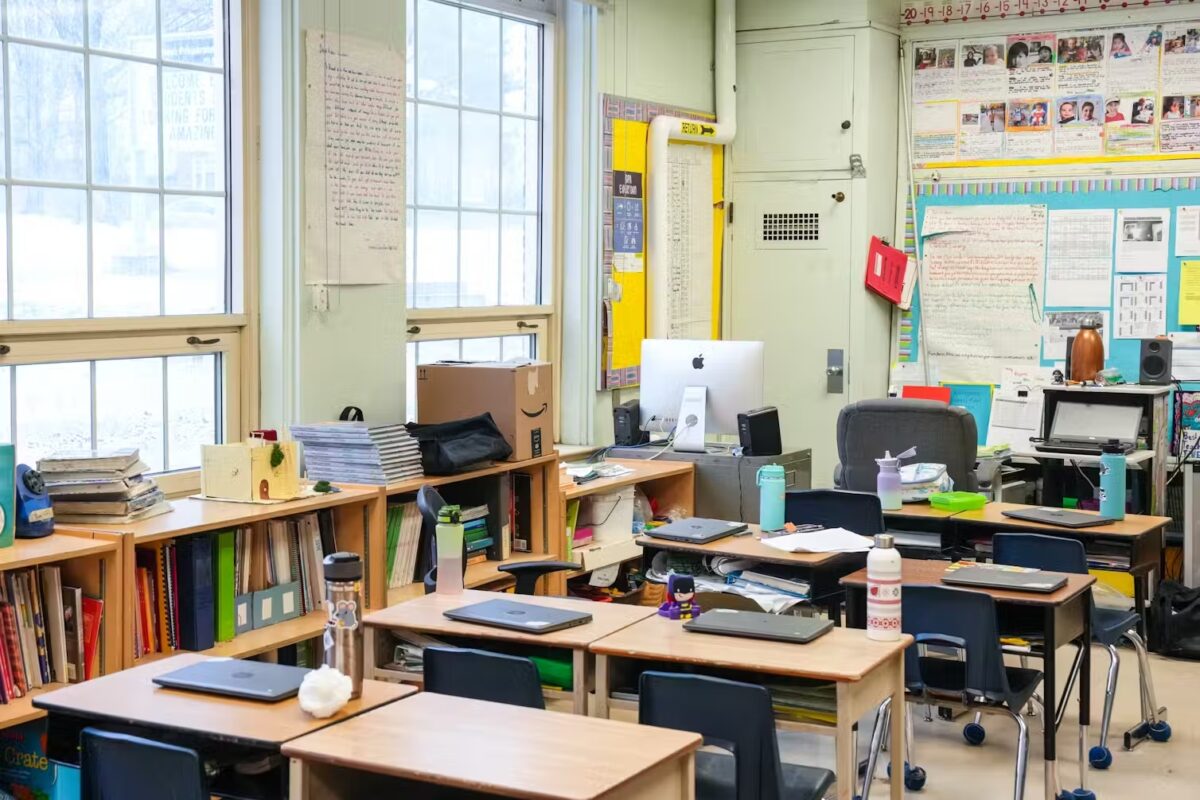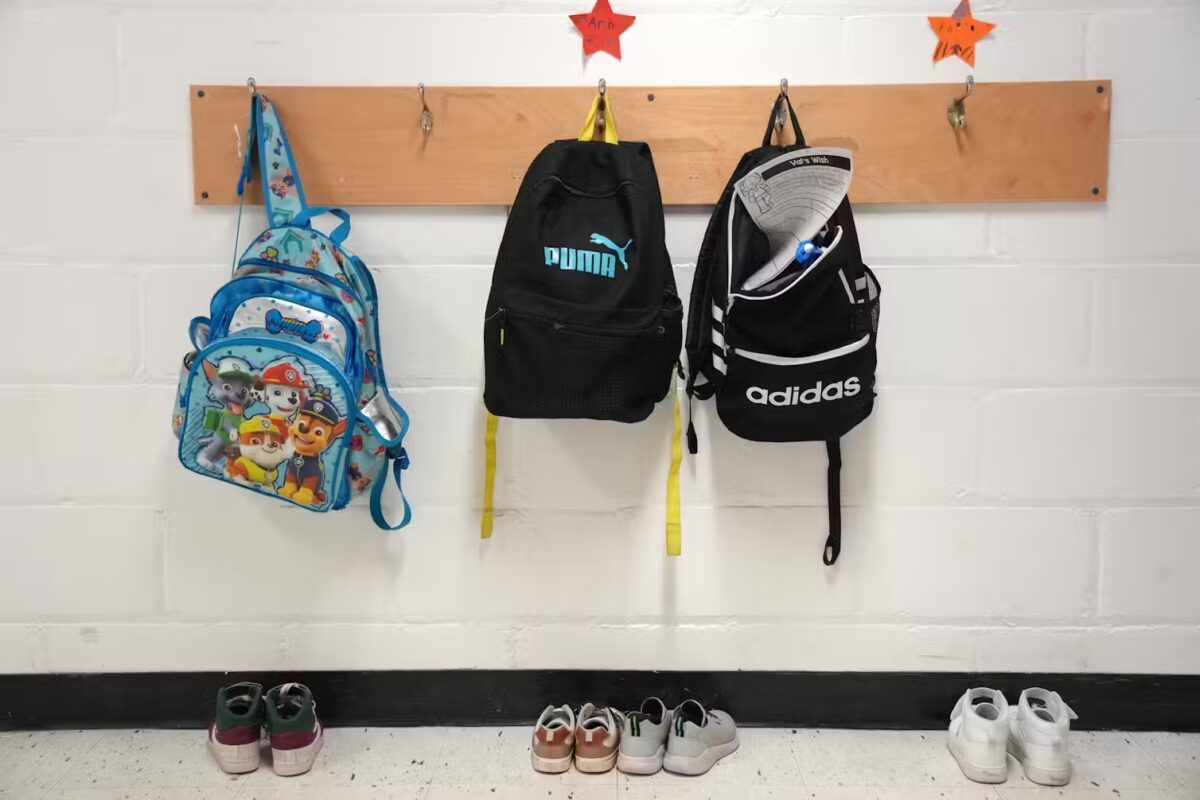Written by Laura Perez Gonzalez
Racialized immigrant parents in a study had to find ways to navigate the education system as newcomers, while also addressing intended and unintended effects of special education programs for their children. (Mche Lee/Unsplash)
The Ontario Ministry of Education’s special education policy and resource guide provides instructions to school boards and schools on administering special education programs.
It also emphasizes the importance of education equity, and involving parents in special education designations.
As researchers, we explored the rights of Latin American and Black Caribbean youth when it comes to special education in our project: the Rights for Children and Youth Partnership.
To better understand newcomer experiences, we interviewed 32 parents, 12 of whom indicated having a first-hand experience with special education in Ontario schools.
We learned that despite the special education policy’s commitment to involving parents, many parents felt excluded from decision-making processes surrounding assessments for their child’s learning needs, and faced language barriers.
Identifying need for special education
In Ontario, students presenting learning needs may be identified as exceptional within one or more special education categories. These categories are intended to address conditions affecting their learning.
Special education can benefit students to ensure an equitable educational experience. However, researchers have also raised concerns about the efficacy of special education programs for equitable learning because of how social factors such as racism and classism result in discriminatory framings of disability and the perception of special needs.

In Ontario’s largest school boards, Black and Latin American youth have been disproportionately placed in special education programs, compared to students in other racial-ethnic groupings.
Research from the Peel District School board, serving the western Greater Toronto Area, reports Black students are three times more likely to be identified with a behavioural exceptionality and streamed into special education programming.
Similarly, Latin American youth have reported arbitrarily being placed in English as a Second Language courses and labelled with communicational exceptionalities, despite proficiency in English. These labels carry long-lasting impacts on their educational journey.
Complex special education processes
In Ontario, the special education placement process is complex and can include many parties (like teachers, principals, special education staff, school board officers, parents or guardians and, if requested, interpreters).
These parties engage in consultations to evaluate the student’s learning needs. Assessments are then reviewed by a board’s Identification, Placement and Review Committee (IPRC), consisting of at least three members, one of whom must be a principal or supervisory officer of the school board.
According to the guide, educators should encourage and invite parents to participate throughout this evaluation process and the IPRC meeting, though their attendance isn’t required.

Lack of required parental input
Parents are, however, required to sign and agree to the IPRC’s statement of decision. They have a right to appeal the findings, and are given 30 days. If parents don’t appeal, the board instructs the principal to implement the committee’s decision, including individual education plans (IEP).
The child’s provincial student record documents the outcomes of the decision, including the various labels, or “exceptionalities” identified, and the IEP. These records follow students throughout primary and secondary education.
Lack of required parental input throughout the process indicates that early on, educators alone can make decisions involving a child.
Language barriers
In our study, one parent, Mariela, described the challenges of learning a new educational system. This was compounded by the technical language educators used:
“The language that is used is very strategic. It’s language that doesn’t welcome parents’ feedback [and] parents don’t know they have the option to say no. […] It’s like, ‘This is what happens; this is what we do. We need you to sign this.’ And that’s the language; it isn’t welcoming for parents to ask [questions].”“The language that is used is very strategic. It’s language that doesn’t welcome parents’ feedback [and] parents don’t know they have the option to say no. […] It’s like, ‘This is what happens; this is what we do. We need you to sign this.’ And that’s the language; it isn’t welcoming for parents to ask [questions].”
Specialized language
Parents also recognized that a sense of pressure to accept educators’ decisions was discriminatory based on their limited abilities to keep up with the discourse and to have input in decision-making. Scarlett described feeling intimidated:
“It was always so traumatic and intimidating dealing with the school; it would be me and five school officials, you know? […] It’s like, you’re coming into this space, and decisions may already have been made.”
Scarlett’s son was identified as having behavioural issues as early as Grade 2. She insisted her son be tested for gifted learning, recognizing that he was experiencing behaviour difficulties because he was bored and not being academically challenged.
Her son was not placed in a gifted class until Grade 7. During what she called “lost time,” the school involved the police in instances when he was “acting out,” and recommended her son be sent to a treatment facility for high-risk youth.

Pressure to accept decisions
Special education meetings also illuminated imbalances we observed in our study between parents who understood they had the right to ask for an interpreter or bring a representative — and parents who were unaware of this.
Claudia voiced concern about a special education label for her son in elementary school, saying educators had mistaken his speech difficulties for low intelligence. She was told her son’s speech delay would impact his ability to go to college or university.
She later recalled learning about her right to bring someone with her to IPRC meetings. She detailed the impact of having her son’s daycare supervisor there with her, saying:
“I wanted to bring that person to support [me], probably for emotional support, for the English support, for the systematic barrier that I knew that I could face.”
With the support of someone who educators also considered an “expert,” Claudia withdrew her son from special education programs — and instead sought additional support outside the school system.
Notably, only a few parents mentioned knowing their right to bring someone to the meetings, and all said the information came from sources outside the education system.
Lack of guidance
The Toronto District School Board has made the effort to increase access to parents’ rights to special education, offering the Guide to Special Education and Inclusion for Parents/Caregivers/Guardians in various languages.
However, for immigrant parents in our study who had no prior experience in Ontario’s schooling system, the lack of concrete information about their rights was a barrier to them being true participants in decision-making.
System accountability is needed to ensure immigrant racialized students and families are effectively provided support and understand the special education process. This support must be tailored to better address the needs of parents, so that their children are equitably positioned for successful academic pathways.
![]()

